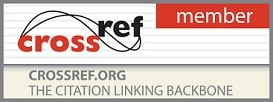Outcome of acromioclavicular joint fixation with hook plate in rookwood type III, IV, V acromioclavicular dislocations
2020, Volume 6 Issue 1
Outcome of acromioclavicular joint fixation with hook plate in rookwood type III, IV, V acromioclavicular dislocations
Author(s): Dr. Shah SH and Dr. Parmar HP
Abstract: Acromioclavicular disruption is common injury in cases of athletic male adults. Internal fixation by Clavicular Hook plate fixation is one of the method used to treat Acromioclavicular Disruption. The aim is to study the results of Acromioclavicular joint fixation with Hook plate in Rookwood type III, IV and V Acromioclavicular dislocations. A Prospective analysis was performed on 22 patients treated with hook plate for acromioclavicular disruption in Department of Orthopaedics, SSG hospital, Vadodara from June 2017 to July 2018. All 22 cases were assessed post-operatively for outcome using the Constant-Murley shoulder function score and radiology at 24 weeks, 48 weeks and 8 weeks after the removal of the hook plate if patient provides consent for removal. In our study; 18 cases were Rockwood type III and 4 cases were Type V. The Constant-Murley Shoulder function score was average 72.4 (Satisfactory) at 24 weeks post-operative; average 80.6(Good) at 48 weeks in all 18 patients without removal of plate. Of 4 patients opting for removal of plate; Constant-Murley score was average 68.2 (Adequate) at 6 weeks post-operatively, which increased significantly to average 92.2 (Excellent) at 8 weeks after removal of plate. Hook plate is a good implant for fixation of Rockwood type III, IV and V Acromioclavicular disruption with minimal complications.
Pages: 326-329 | 1175 Views 83 Downloads
How to cite this article:
Dr. Shah SH, Dr. Parmar HP. Outcome of acromioclavicular joint fixation with hook plate in rookwood type III, IV, V acromioclavicular dislocations. Int J Orthop Sci 2020;6(1):326-329. DOI: 10.22271/ortho.2020.v6.i1f.1883






